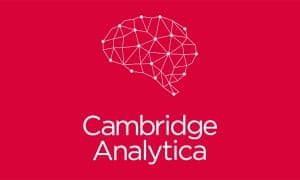On November 7, 2016, when darkness was about to prevail in the US, even darker news shocked the whole world. CNN was projecting Donald Trump, the least probable candidate ever in US election history, as the winner of the election and 46th president of the United States of America. I thought maybe it was just a coincidence, a mere glitch of democracy, but it was not as later developments showed. It was a well-crafted victory driven by most powerful tools on the earth, probably more potent than nuclear arsenals: data and artificial intelligence.
The process behind this started many years before this historic win. It started when a Canadian data scientist, Christopher Wylie, saw a research paper on how personality traits can be linked to political affiliation accurately. It was just another psychology paper, but there was something that made it so attractive: data. Before the AI era to analyze people and their behavior, companies would hire psychologists, those after several or sometimes many sessions provided their results. But this paper was using facebook data for analyzing the public and their choices. Like it was possible to get substantial scale data freely, and more data meant more precise artificially intelligent models. Based on this paper’s idea, Wylie founded a company with the name of Cambridge Analytica, which turned the election for Donald Trump.
Why was Facebook data so crucial to all of this? Because data is one of the essential commodities for artificial intelligence and techniques used by Cambridge Analytica and is truely recalled “oil of the future.” To understand the importance of data, we first need to understand how artificial intelligence or machine learning systems work — most AI systems based on discovering like a child. To make a model learn, you first need to have training data. Suppose you want a computer to visualize a picture and tell whether it is a dog or a cat. You have to feed some of the relevant pics of these animals; the model can guess the picture. Then you will feed your model with labels, and it changes itself to produce correct labels. This process will keep on going for all the pictures many times, and in the end, the model will be able to predict a new picture for cat and dog. And the more data you have, the more accurate your model would be.
The cat-dog model may look simple to you, but the powerful thing about this technology is how easy it is to scale it up. All you have to do is to formulate your problem like the cat-dog one. Do you want cars to be driverless? Put cameras on it, made a few hundred drivers run a car for some thousands of miles. Record driver’s activity along with camera pictures, train your model with this pair of data, and you can develop a driverless car. Do you want a computer to diagnose cancer? Take one hundred thousand examples of ultrasounds of people with and without cancer and fed with artificially intelligent models, you will get a cancer diagnosis system that can outperform even expert doctors.
Similarly, in the US election campaign, social media have had massive secret data. Fortunately for Wylie, at that time, Facebook allowed scientists to gather data for research purposes. Wylie collaborated with a psychology professor and made a cute “personality quiz” app that you might have seen on Facebook and other websites. But the malicious thing about this app was that it not only collected personality traits with the psychological questionnaire but also collected other data of the user such as likes, status updates and friend lists, and even data of the friends.
Okay, Cambridge Analytica got this treasure; however, the most critical question is, how did they use it to win the election? For a candidate to win an election, he/she has to approach voters and convince them through tv advertisements, newspaper ads, billboards, rallies. This kind of advertisement target everyone equally, but everyone has a mentality. Some people might be convinced with religion-based messages while others may like anti-corruption campaigns and so on. So one kind of message may not work for everyone. Then the question is, how can we feed people messages that indeed affect them.
Psychology has one answer to this question: personality models. Based on a quiz of 100 questions, you can broadly classify a person into one of the personality types. Based on the personality type, you can find many things about a person, such as his political ideology, things he will like, things to change his ideology. Around 250,000 people took personality quizzes, and Cambridge Analytica got their likes, status updates, place of living, and friend lists. Along with these quizzes, it created a labeled dataset of 250,000 people: each person’s facebook data and personality type. Cambridge Analytica also had data from all the friends of these 250,000 people: a total of 80,000,000 people. They used the labeled data to find the personality type of each person, and now they know almost everyone in the USA.
But this was not the end of the story. This data provided a complete view of how voters in different areas think. Knowing what people think is not enough. To win a presidentship, especially for someone as bad as Donald Trump, you also need to change how people perceive you. To do this, they started by doing targeted camping on Facebook. On Facebook, you can target a specified audience for ads. Cambridge Analytica used this tool and targeted a very specified audience with ads that were most relevant to them. This audience was the people who were most prone to certain kinds of things like laws about guns, healthcare. They also provided powerful campaign slogans and issues to hit. This way, Cambridge Analytica provided a data-driven and kind of an artificially intelligent machine to create propaganda and won the election for Doland Trump. They weaponized the data and AI.
Unfortunately, we can not label this success as coincidental since Cambridge Analytica successfully used their skills to meddle elections of many countries. It tells us how relevant data and artificial intelligence are and how they can use it to perform illegal acts. Therefore, the real threat of artificial intelligence is not about the robot apocalypse or computers taking over the world, but a powerful technology is a toy for evil.
Link to Similar posts: https://scientiamag.org/a-unique-story-of-cyber-crime/

Awais is doing PhD. in artificial intelligence and machine learning. Linear algebra excites his neurons, machine learning raises his dopamine levels and neuroscience makes him gape. He loves writing good code and reading deep books. You can find more about him at awaisrauf.github.io

/cdn.vox-cdn.com/uploads/chorus_asset/file/10475931/1.png)
